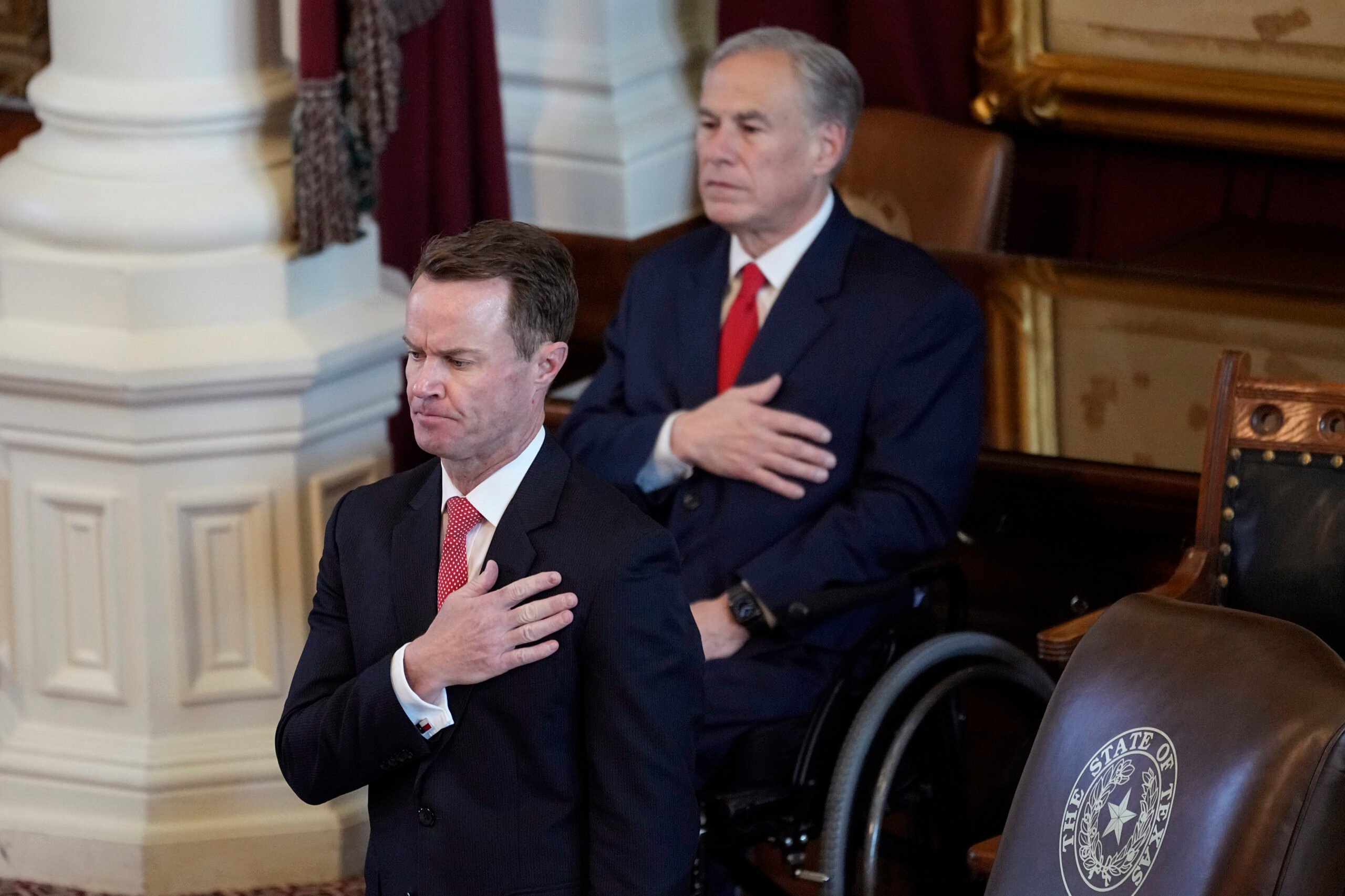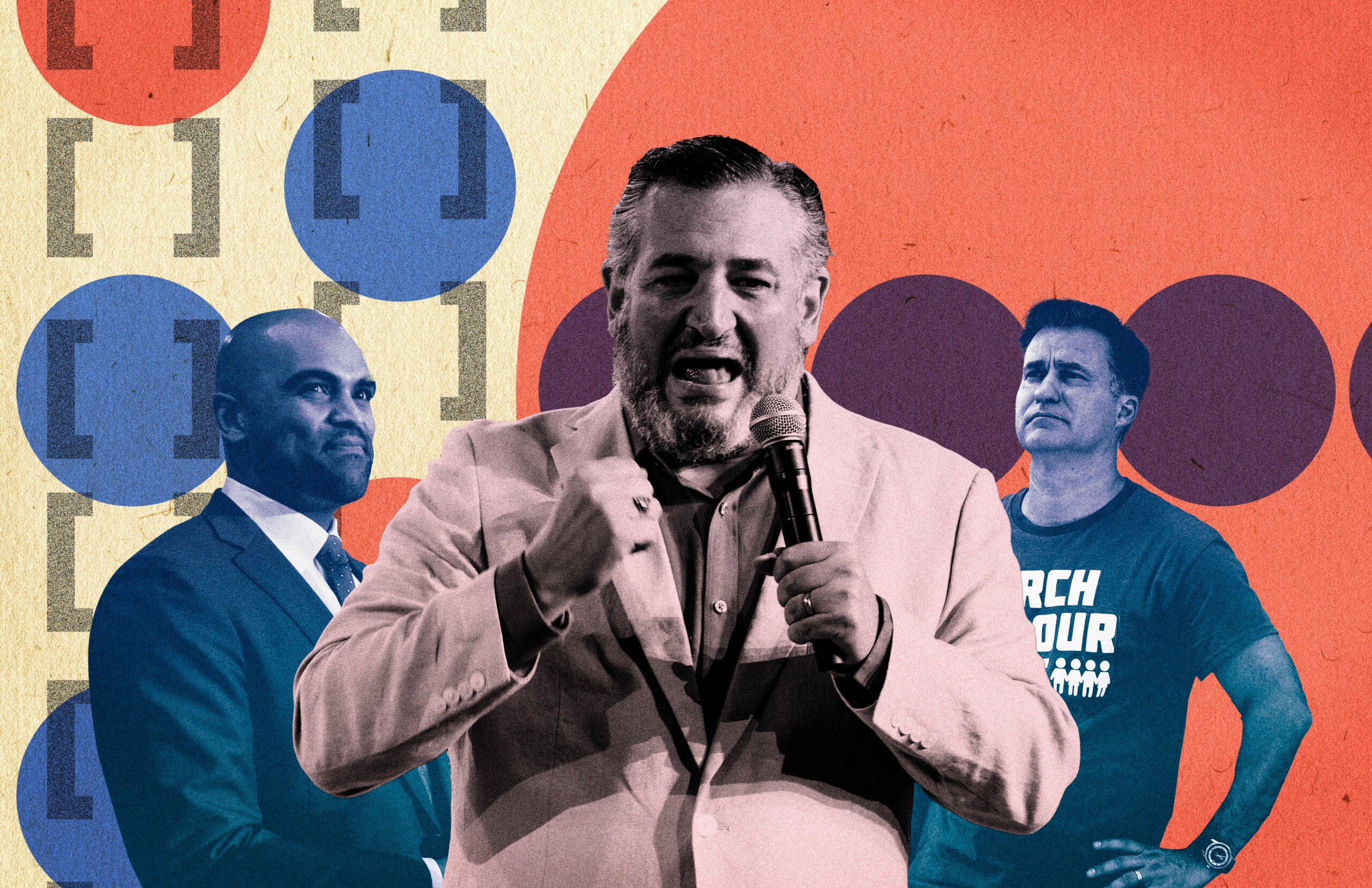
Speaker Phelan Survives Texas House Demolition
But Governor Abbott completes his evisceration of anti-voucher incumbents.

Republican state House Speaker Dade Phelan showed up to his election night watch party in Beaumont with a camo campaign hat, a victory cigar, and a posse of his top lieutenants in tow after having eked out a runoff victory by just a few hundred votes.
“HD 21 is not for sale,” he told supporters after spending a boatload of big establishment donor money to beat his challenger, GOP activist David Covey, who was himself backed by a somewhat larger boatload of far-right donor money in what was one of the most expensive state House primary races Texas has seen.
“I will be your representative to the House next session. And I will be your speaker next session,” he said. While the former is certainly true, the latter is less certain.
Phelan was just one of two survivors in what was otherwise an anti-incumbent shellacking that took down six other Republican state reps, on top of nine other incumbents who lost outright in the March primary, all unleashed by an angered governor, a spiteful lieutenant governor, and a vengeful attorney general alongside a cooperative if little-informed GOP presidential candidate.
Phelan’s defiant win was surely a satisfying one considering how badly Lieutenant Governor Dan Patrick and Attorney General Ken Paxton wanted to take him out. (Ever the political windvane, Abbott was publicly agnostic about Phelan’s fate.)
At the GOP state convention in San Antonio last week, the Tim Dunn far right retained its staunch hold on the party, which they’ve made into a vehicle for political vengeance and party purification. It was a Phelan hatefest and a celebration of the hero Paxton, who escaped both Senate conviction on impeachment charges and criminal securities fraud charges in the span of roughly six months
But on Tuesday night, the GOP’s hardcore failed to claim their prized political pelt: causing Phelan to become the first House speaker to lose reelection since the 1970s.
Paxton, Patrick, and a band of new conservative rep-elects cast their ouster of Phelan as the first step in a monumental remaking of the Texas House—a war to blow up the so-called uniparty, remove Dems from committee chairmanships, and reform the House rules that they say have been weaponized to silent dissent and subtly kill certain priority legislation.
Phelan’s survival throws a wrench in those plans. Yet, the speaker will have his work cut out for him as he likely will face in January the most serious challenge to his leadership of the House since securing the speakership two terms ago.
More than a dozen of his GOP colleagues fell victim to the governor’s campaign of vengeance on Republicans who dared oppose his school voucher scheme or, to a lesser degree, Paxton’s revenge campaign against those who impeached him. And some of Phelan’s loyal lieutenants opted not to seek reelection at all. In short, the Texas House he’s ruled for almost four years will look much different when he returns.
Upon Phelan’s win, Paxton issued a lengthy statement claiming the speaker was reelected thanks to a flood of Democratic voters. “My message to Austin is clear: to those considering supporting Dade Phelan as Speaker in 2025, ask your 15 colleagues who lost re-election how they feel about their decision now,” he posted on Twitter. “You will not return if you vote for Dade Phelan again!”
While Phelan’s political veneer has shown cracks, it’s still difficult to oust a sitting speaker, who can effectively whip any potential straying reps into line by stick or carrot–promises or threats.
While the Empower Texans wing, as once it was known, has failed to mount anything close to a successful speaker campaign, which requires majority support within the lower chamber, there’s increasing signs of anti-Phelan discontent in the wake of the House’s failed impeachment of Paxton.
Meanwhile, Abbott reigned supreme in the runoffs, finishing off a near sweep of the anti-voucher incumbents he set his sights on this year. As always, Abbott’s strength comes not from his legislative gravitas or persuasiveness but from his massive campaign warchest. After repeatedly failing through multiple special sessions to goad a largely rural contingent of House Republicans to support his costly voucher plan, Abbott followed through on his threat to finance a massive primary slate against anti-voucher incumbents.
“The Texas legislature now has enough votes to pass School Choice,” Abbott tweeted Tuesday night.
His effort was underwritten with $6 million—one of the largest campaign contributions in Texas history—from Jeff Yass, a pro-voucher evangelist and hedge fund investor from Pennsylvania who also owns a major stake in TikTok, which Abbott banned from state property last year.
For Abbott, two wrongs surely can make a right. He used that cash to fund an airwaves offensive with ridiculously bad-faith attack ads that, strangely enough, didn’t really bother to mention vouchers at all. Instead, the guv personally accused his targets of sabotaging his border security crusade, when in reality they had all been loyal lackeys voting for each and every thing he asked for.
His longtime top political operative Dave Carney even reportedly acknowledged after the fact that his client’s attack lines on incumbents were “bullshit.”
Yet the strategy was highly effective.
Abbott has finally broken the seawall—a coalition of rural Republicans and urban Democrats—that has kept at bay the conservative yearning to use public school funding for private, predominantly religious, education. Where “Dubya” and Rick Perry failed, Abbott is on the verge of hard-bought success.
Money truly can buy anything—including a legislative majority, if not a functional public education system.



